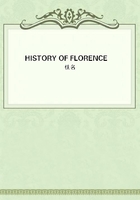
第19章
At this period a memorable circumstance took place at Rome. Niccolo di Lorenzo, often called Rienzi or Cola di Rienzi, who held the office of chancellor at Campidoglio, drove the senators from Rome and, under the title of tribune, made himself the head of the Roman republic;restoring it to its ancient form, and with so great reputation of justice and virtue, that not only the places adjacent, but the whole of Italy sent ambassadors to him. The ancient provinces, seeing Rome arise to new life, again raised their heads, and some induced by hope, others by fear, honored him as their sovereign. But Niccolo, notwithstanding his great reputation, lost all energy in the very beginning of his enterprise; and as if oppressed with the weight of so vast an undertaking, without being driven away, secretly fled to Charles, king of Bohemia, who, by the influence of the pope, and in contempt of Louis of Bavaria, had been elected emperor. Charles, to ingratiate himself with the pontiff, sent Niccolo to him, a prisoner.
After some time, in imitation of Rienzi, Francesco Baroncegli seized upon the tribunate of Rome, and expelled the senators; and the pope, as the most effectual means of repressing him, drew Niccolo from his prison, sent him to Rome, and restored to him the office of tribune;so that he reoccupied the state and put Francesco to death; but the Colonnesi becoming his enemies, he too, after a short time, shared the same fate, and the senators were again restored to their office. The king of Hungary, having driven out Queen Joan, returned to his kingdom; but the pope, who chose to have the queen in the neighborhood of Rome rather than the king, effected her restoration to the sovereignty, on the condition that her husband, contenting himself with the title of prince of Tarento, should not be called king. Being the year 1350, the pope thought that the jubilee, appointed by Boniface VIII. to take place at the conclusion of each century, might be renewed at the end of each fifty years; and having issued a decree for the establishment of it, the Romans, in acknowledgment of the benefit, consented that he should send four cardinals to reform the government of the city, and appoint senators according to his own pleasure. The pope again declared Louis of Tarento, king, and in gratitude for the benefit, Queen Joan gave Avignon, her inheritance, to the church. About this time Luchino Visconti died, and his brother the archbishop, remaining lord of Milan, carried on many wars against Tuscany and his neighbors, and became very powerful. Bernabo and Galeazzo, his nephews, succeeded him; but Galeazzo soon after died, leaving Giovan Galeazzo, who shared the state with Bernabo. Charles, king of Bohemia, was then emperor, and the pontificate was occupied by Innocent VI., who sent Cardinal Egidio, a Spaniard, into Italy. He restored the reputation of the church, not only in Rome and Romagna, but throughout the whole of Italy; he recovered Bologna from the archbishop of Milan, and compelled the Romans to accept a foreign senator appointed annually by the pope. He made honorable terms with the Visconti, and routed and took prisoner, John Agut, an Englishman, who with four thousand English had fought on the side of the Ghibellines in Tuscany. Urban V., hearing of so many victories, resolved to visit Italy and Rome, whither also the emperor came; after remaining a few months, he returned to the kingdom of Bohemia, and the pope to Avignon. On the death of Urban, Gregory XI. was created pope;and, as the Cardinal Egidio was dead, Italy again recommenced her ancient discords, occasioned by the union of the other powers against the Visconti; and the pope, having first sent a legate with six thousand Bretons, came in person and established the papal court at Rome in 1376, after an absence of seventy-one years in France. To Gregory XI., succeeded Urban VI., but shortly afterwards Clement VI.
was elected at Fondi by ten cardinals, who declared the appointment of Urban irregular. At this time, the Genoese threw off the yoke of the Visconti under whom they had lived many years; and between them and the Venetians several important battles were fought for the island of Tenedos. Although the Genoese were for a time successful, and held Venice in a state of siege during many months, the Venetians were at length victorious; and by the intervention of the pope, peace was made in the year 1381. In these wars, artillery was first used, having been recently invented by the Dutch.
CHAPTER VII
Schism in the church--Ambitious views of Giovanni Galeazzo Visconti--The pope and the Romans come to an agreement--Boniface IX. introduces the practice of Annates--Disturbance in Lombardy--The Venetians acquire dominion on terra firma--Differences between the pope and the people of Rome--Council of Pisa--Council of Constance--Filippo Visconti recovers his dominion--Giovanna II. of Naples--Political condition of Italy.
A schism having thus arisen in the church, Queen Joan favored the schismatic pope, upon which Urban caused Charles of Durazzo, descended from the kings of Naples, to undertake the conquest of her dominions.
Having succeeded in his object, she fled to France, and he assumed the sovereignty. The king of France, being exasperated, sent Louis of Anjou into Italy to recover the kingdom for the queen, to expel Urban from Rome, and establish the anti-pope. But in the midst of this enterprise Louis died, and his people being routed returned to France.
In this conjuncture the pope went to Naples, where he put nine cardinals into prison for having taken the part of France and the anti-pope. He then became offended with the king, for having refused to make his nephew prince of Capua; and pretending not to care about it, requested he would grant him Nocera for his habitation, but, having fortified it, he prepared to deprive the king of his dominions.